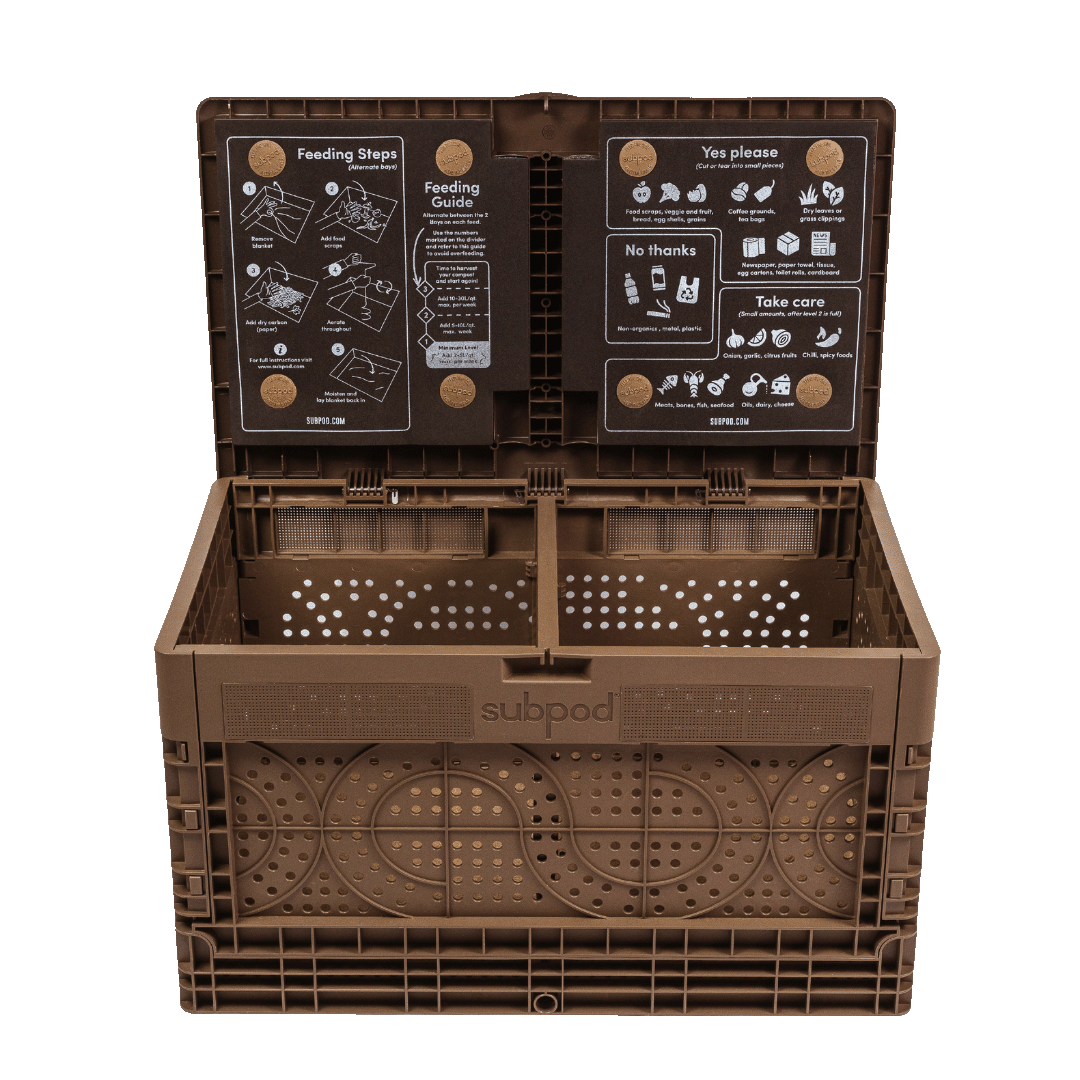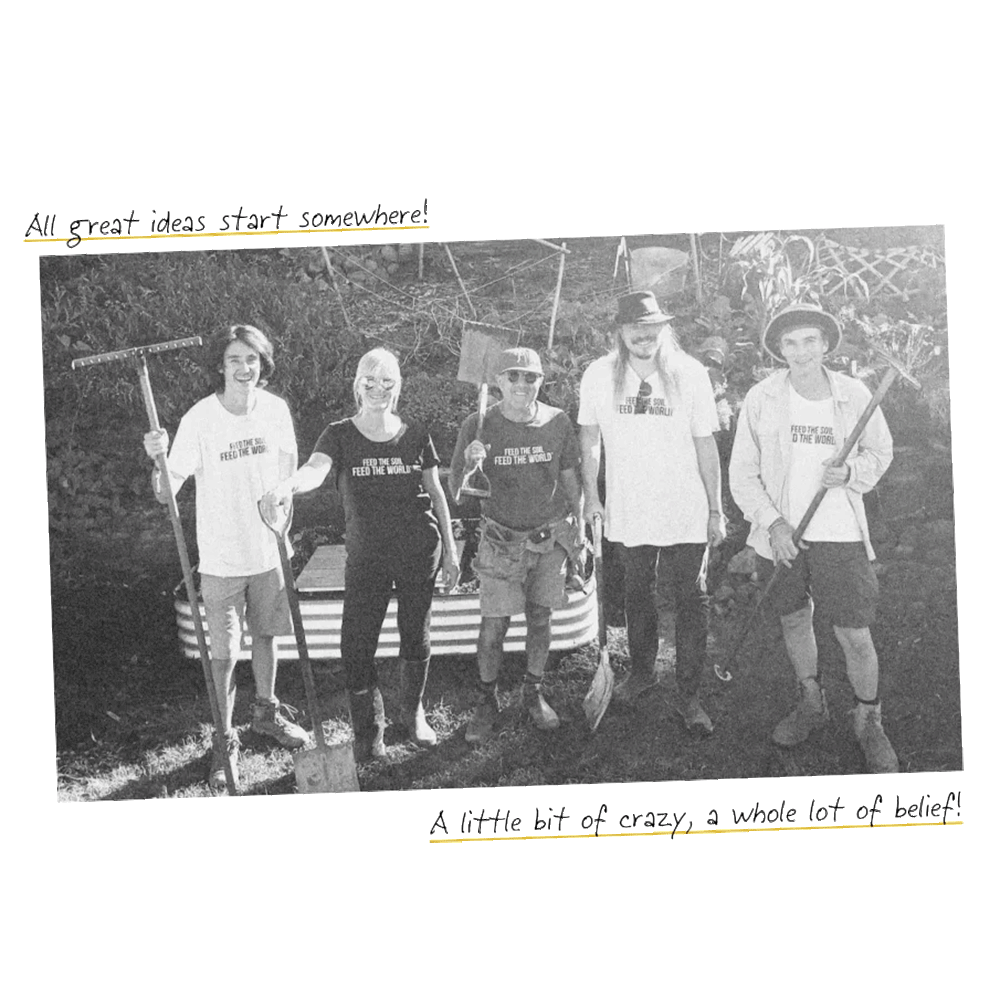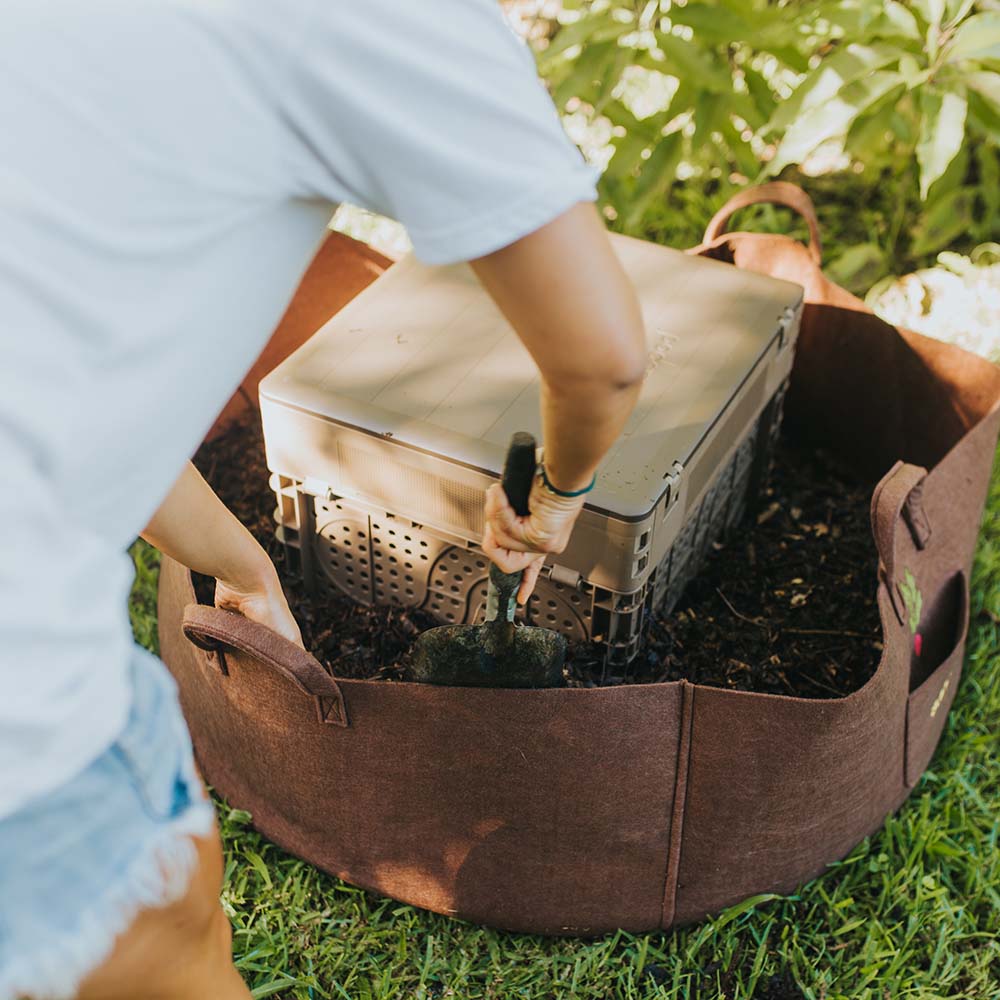In this article:
Onions in Your Compost
Anyone who enjoys creating hearty, tasty meals will know how important onions are in the kitchen! They’ve been gracing an array of dishes worldwide for thousands of years and are a staple of recipes in many diverse cultures.
What about when it comes time to dispose of your onion food waste? If you’re a composter you won’t want to toss them in the bin and send them to landfill. You’ll want to turn them into prized plant food with the rest of your organic waste.
But onions have quite intense flavours and smells, and have been known to push chefs to the point of tears! So the question is, are they safe for your compost bin? Let’s find out!

Can You Compost Onions?
Onions are organic waste, so by default you’d expect to compost them. There are a lot of different opinions out there, but in short, you can definitely put onions into your compost bin. You just have to take a bit of extra care with them for a few reasons.
For a start, onions are very acidic. Compost likes a nice and neutral pH that hovers around 7. The microroganisms involved in decomposition like it around there too. If it gets too acidic it can start to smell and the composting process will slow down.
Secondly, onions like to grow. So if you toss them in your bin, they could start sprouting! (Who can blame them, with all that delicious compost around?)
If you’re using a vermicomposting system like Subpod, you may worry that your worms will be harmed by the acidic onions. It’s a valid concern, but there are ways around this to ensure you can compost onions in your Subpod worm farm.
Lastly, have you ever smelt a rotten onion? They really do have a pungent odour that you don’t want in your back yard! Care is required to compost them in a way to avoid smells.
By the end of this article, you’ll know how to work around all these pitfalls and successfully compost your onions! But first, there’s something else you should know…

Are Onions a Green or Brown Compost Material?
If you are a seasoned composter, you know the drill when it comes to greens and browns. If you’re just getting started, this is definitely something you should know.
Green materials are high in nitrogen, and include all your kitchen food waste, recently mowed lawn or pulled weeds from your garden. Generally, greens are fresh and juicy! They have a higher moisture content than drier ‘browns’. Browns are rich in carbon and include things like cardboard, paper, dried leaves and sawdust.
All organic waste that goes into your compost bin needs to be applied in a ratio of greens and browns. The commonly accepted ratio is around two to three parts brown to one part green, although this can be adjusted as fit. For example, if your compost bin is too wet, you probably have too many greens in there and should add some browns.
Onions, like most of the food waste in your kitchen, are rich in nitrogen so are considered a green composting material. You’ll want to mix them in with lots of browns, to give your compost structure and balance the moisture content.
Are Onions Safe for Vermicomposting?
If you’re anything like us, vermicomposting becomes more than just reducing food waste and producing compost. You actually get attached to your worms! You want to treat them right and make sure they have a nice life. Is feeding them onions going to do that?
Onions are quite acidic, so they will irritate worm skin, which is also their breathing system. If you add a large amount of any acidic food waste to your worm farm the worms will definitely struggle.
This is not to say it can’t be done! You can still definitely compost onions in your Subpod worm farm or other wormery. You just have to monitor the quantities you put in. We’re going to go over how to safely compost onions in greater detail lower down!
What to Look for When Composting Raw, Cooked, Mouldy, or Diseased Onions
All onions do not leave your kitchen in the same state, and some are more compostable than others. Here’s a breakdown:
Mouldy Onions: Mouldy onions are well into their decomposition journey, and the fungi is just a natural part of this process. These can be composted safely, in fact they’ll have a head start on your other food waste.
Diseased Onions: You should avoid putting any kind of diseased food waste into your recycling bin, and onions are no exception. The disease will spread through your compost and infect plants that you apply it to. So if your onions are afflicted with diseases like leaf blight, onion mildew or white rot, you’ll have to think of another way to dispose of them.
Cooked Onions: The problem here is not so much that your onions are cooked, it’s what they have been cooked in. Many onions are fried in oils or have absorbed animal fats during the cooking process. You want to keep fats and oils out of your compost bin, so be careful when applying cooked onions.
Raw Onions: These are safe to compost. We’re going to teach you how to do that right now!
How to Compost Onions
Now you know that you can compost onions in a worm farm or traditional compost system, we want to show you how to do this the right way.
To start off with, if you try composting a whole onion, it might start to grow again. You’ll end up with an onion farm in your compost bin! The best thing to do is to chop up your onion into smaller pieces. This presents more surface area for the worms and microbes to work on, and makes it easier to mix in the onion with your other materials.
Chopping up and mixing the onions with other food waste will make it easier for the worms in your worm farm to tolerate them. We’d also recommend mixing the onions in with the matter already in your bin, and ensuring they’re buried under organic waste. This helps prevent odours from getting out!
When composting onions make sure you apply plenty of ‘brown’ material to your bin, such as shredded paper or dead leaves. This is essential for aeration and water retention, helping turn your onions into nutrient-rich compost in a faster time frame.
Composting Onions with Subpod
Subpod is a vermicomposting system that uses worms and microbes to break down organic food waste. Subpod is an effective means of composting onions if you follow the above advice. Remember, worms aren’t big fans of onions, because as we mentioned above the acidic pH irritates their skin. Subpod’s strategic ‘worm flow’ holes allow the worms to move away from the onions and into the surrounding soils if it's too much for them. The remaining microbes break down the matter, and the worms return when the pH is back to normal.
If you’re looking to get started with home composting, Subpod is a great choice. It’s flexible and versatile, able to be used in outdoor spaces regardless of their size! Subpod sits submerged in a garden bed, with the lid protruding out the surface and doubling up as a garden seat!
You open the lid, and your food waste goes in to feed the hungry worms and microbes living inside. They get to work, converting it to the nutritious worm compost known as ‘black gold’. This is a plant superfood that you’re going to love spreading around your garden!






Leave a comment
This site is protected by hCaptcha and the hCaptcha Privacy Policy and Terms of Service apply.